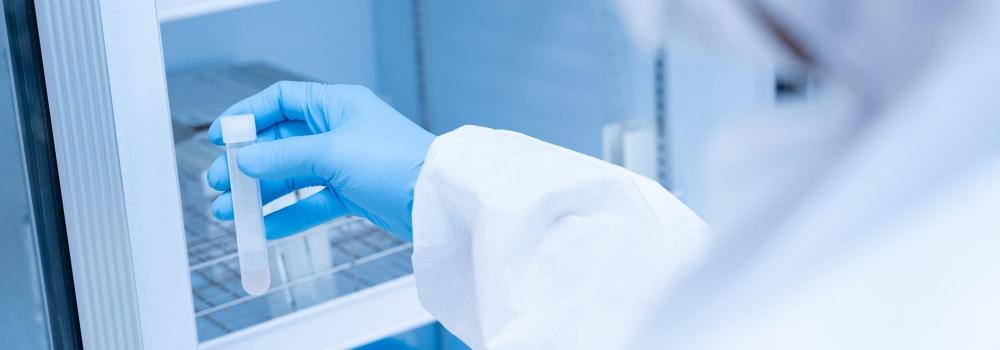High-quality cold chain management is essential for vaccine storage and delivery. Whether protecting patient health, minimizing product degradation and financial loss, or maintaining public confidence, keeping vaccines within precise conditions is of the utmost importance. Ensuring consistent environmental conditions allows healthcare providers to issue lifesaving vaccines to their patients with full confidence of each vaccine’s integrity and efficacy.
Furthermore, the current efforts to deliver COVID-19 vaccines globally have put this process under increased focus due to mRNA-based vaccines requiring extreme cold storage until just before delivery. A reliable temperature management and tracking system is a vital component of any cold chain process at the storage stage, and this will be the case for COVID-19 vaccines as well in the coming months and years.
What can your facility do to be prepared to optimize cold chain management and monitoring? Read on to find out.
Poor Cold Chain Management is a Threat to Proper Vaccine Delivery
From the moment a drug or vaccine arrives at a hospital, pharmacy, or healthcare facility, that location bears responsibility for maintaining the cargo’s quality until it can be delivered to patients. Proper refrigerated and cryogenic storage helps to keep vaccines within the recommended range of conditions, avoiding a break in the cold chain that could mean additional costs to the hospital, lost doses for patients or additional doses if they received a vaccine with reduced efficacy, and lowered public confidence.
Vaccines are sensitive to both light and temperature, and the loss of potency from variances in these factors cannot be regained, so ensuring proper storage parameters is vital to keeping these supplies in peak condition.
Poor refrigeration equipment can compromise a temperature-sensitive drug’s potency, but other threats exist as well. Loss of power, even temporary, presents not just a risk to medical equipment throughout a facility, but also to temperature maintenance for medications. A lack of proper data tracking and logging costs confidence in the integrity of any medications stored in refrigeration, as medical professionals must be certain they are delivering medications and vaccines that have been properly stored throughout their time in the facility. Furthermore, thermometers that fail to maintain both accurate and precise temperature measurements may lead to an inaccurate record of a supply’s time spent in the facility, undermining full knowledge of its condition upon delivery to a patient.
Thus, proper cold chain management requires not just adequate refrigeration or freezing equipment, but also staff training, general facility integrity, and the ability to accurately monitor refrigerated spaces to ensure that vaccines are kept at required temperatures to maintain effectiveness.
Optimizing Your Cold Chain Monitoring System
In their Vaccine Storage and Handling Toolkit, the Centers for Disease Control and Prevention identifies multiple important factors for cold chain management in vaccine storage and delivery. Among other essential items, the CDC recommends a temperature monitoring device that can:
- Track temperature precisely
- Send alerts for values above or below the desired temperature range for vaccines and medications stored within a specific unit
- Log data digitally to reduce labor and potential errors associated with manual entry
An ideal temperature monitoring system will also use a probe suspended in a thermobuffer medium that can simulate the thermal mass of a vaccine, as brief temperature changes from opening and closing refrigerator/freezer doors might lead to fluctuations in the air that aren’t reflected in enclosed solutions. And the entire cold chain monitoring system should be powered by a backup power source so that temporary loss of power does not threaten temperature tracking and data logging.
Primex OneVue Temperature Sensor Meets Your Cold Chain Vaccine Storage Needs
The Primex OneVue Sense™ Temperature Sensor measures temperature within 1.0 ˚F (0.5 ˚C) accuracy and uses a calibrated probe — that meets National Institute of Standards and Technology standards —suspended in a thermobuffer (glycol or wax), and can send notifications (audible, email, or text) to warn of any temperature excursions outside the recommended range. The sensor contains a battery backup with a low-battery indicator and can log data at 30-minute intervals, per World Health Organization and CDC recommendations. Standard probes have an operating range of -104 °F to 221 °F (-40 ˚C to 105 ˚C), suitable for most vaccines and medications. Cryogenic probes can handle a range of -324.4 ˚F to 302 ˚F (-198 ˚C to 150 ˚C), well beyond even the increased range demanded by some early mRNA-based COVID-19 vaccines. OneVue Sense reports can be generated from desktop or mobile devices, allowing for on-demand demonstration of regulatory compliance.
Interested in learning more about how Primex OneVue can take your cold chain monitoring and compliance to the next level? Reach out today for a consultation.
Sources:
